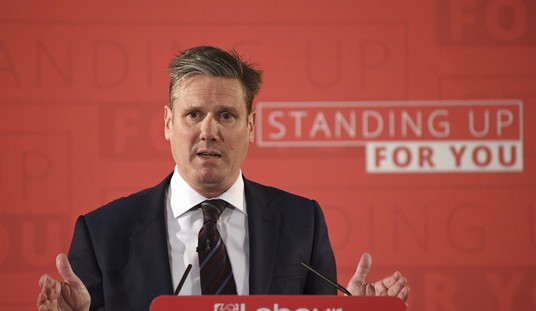Heading into his big closed-door meeting with lawmakers on the Senate Banking, Housing, and Urban Affairs Committee on Wednesday afternoon, during which he intended to lobby for a stay in further Iranian sanctions on behalf of the White House, Secretary of State John Kerry already had his work cut out for him:
The Obama administration’s efforts to strike a diplomatic deal with Iran over its nuclear program is running into growing criticism on Capitol Hill, with one top lawmaker expressing concern that Secretary of State John Kerry may be willing to give up too much just to say he’s got a deal.
Sen. Lindsey Graham, R-S.C., among the lawmakers who are meeting with Kerry Wednesday afternoon on Iran, charged that the administration “wants a deal too badly.”
“What is your endgame here?” Graham said he’d ask Kerry. “What I want John to tell me is, ‘How does this movie end?’”
And meanwhile, over on the House side, Executive Director of the Foundation for the Defense of Democracies Mark Dubowitz was giving his expert opinion on the Obama administration’s hurried push to solidify the framework for some kind of diplomatic deal with Iran during a Foreign Affairs Committee hearing, via the WFB:
REP. SCOTT PERRY: I am as many Americans are concerned about implications for the broader region and for our only true ally in the region, which is Israel, which has a lot at stake to lose. So I ask you what other than the rhetoric has changed on the ground regarding the nuclear program and ambitions of Iran that should lead us to believe that we should change our position? Is there anything other than rhetoric, tangible?
MARK DUBOWITZ: Nothing has fundamentally changed in the rhetoric, the nuances have changed, the nuclear physics have changed, and Iran has advanced its program significantly. I think what’s changed is there is a sense now in Iran they can have their cake and eat it too. They can have a nuclear weapons program and a buoyant economy. Unfortunately, the negotiations in Geneva are showing the Iranian regime that they can have a nuclear weapon, sanctions relief, and a stabilized economy that gets the oil flowing. And then Supreme Leader Khamenei can do what he’s always wanted to do, he wants to be a regional power, he doesn’t want to be the Persian equivalent of North Korea.
I’m not seeing any word yet about any post-meeting exit interviews on how the Senate Banking Committee plans to proceed on sanctions legislation in question, but this is one of those rare birds on Capitol Hill that enjoys heavy bipartisan support, despite the administration’s wishes; here’s the opening statement from the ranking Democrat on the House Foreign Affairs Committee, via Jennifer Rubin, who also reports that Dubowitz picked up on “deep Democratic skepticism” about the White House’s approach throughout the hearing:
I’m deeply troubled by reports that the proposed agreement would not have required Tehran to stop all enrichment. If Iran intends to show good faith during these talks, I believe it must — at a minimum — abide by United Nations Security Council resolutions calling for a halt to enrichment, and it is my hope that we achieve much more. In addition, I forcefully reject any notion that Iran has a ‘right’ to enrichment, a position the administration has publicly supported on numerous occasions. Given the failure to reach an agreement in Geneva, I believe it’s time for my colleagues in the Senate to take up the Iran sanctions legislation I co-authored with Chairman Royce and which the House passed overwhelmingly this summer. We must make it crystal clear to Tehran that even tougher sanctions are coming down the pike if the regime is unwilling to take concrete and verifiable steps.
The next round of diplomatic talks with the Iranians is scheduled to begin in one week.








Join the conversation as a VIP Member